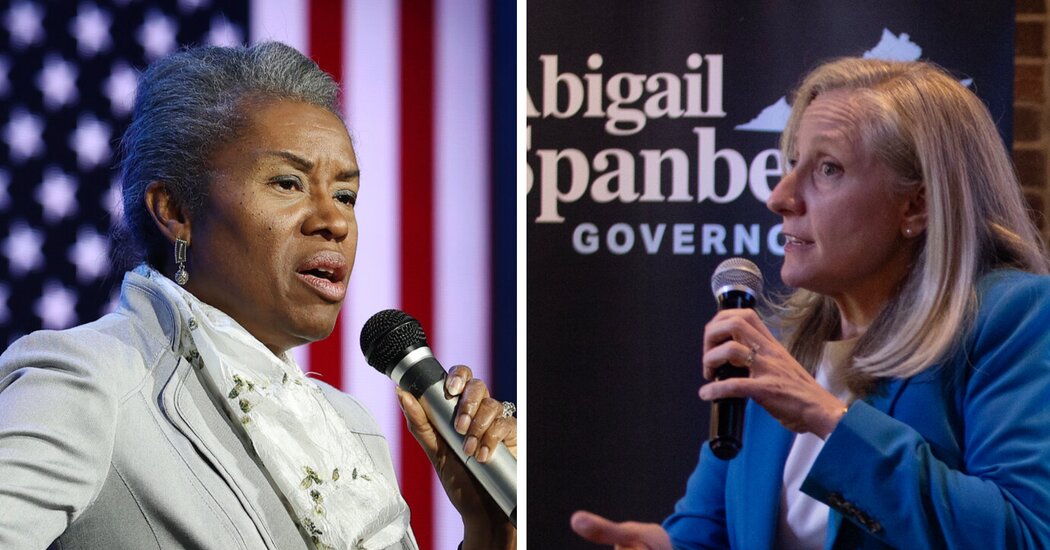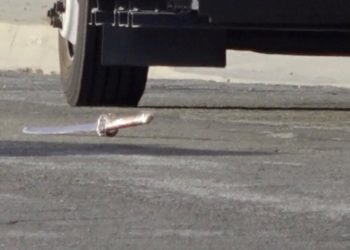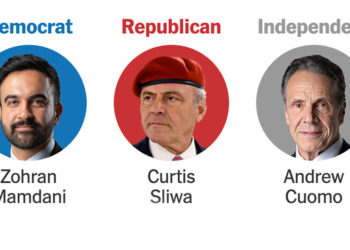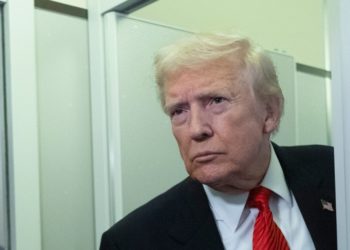Take yourself back to election night in 2024. One of the earliest signs that Donald Trump was on track for a good night came not from a major swing state, but from the well-heeled and highly educated suburbs of Northern Virginia, where Kamala Harris was winning — but not by enough.
It’s been about a year since that night, and in that time, President Trump has stormed back to Washington and upended the federal government, just as he promised. He has cut hundreds of thousands of workers from the federal payroll, pushed the limits of executive power and, even though his party controls Congress, presided over what will, on Tuesday night, become the longest government shutdown in history.
Tomorrow’s off-year elections will give voters their first chance to weigh in on all that upheaval. I’ve got a guide to the big races in places like New York, New Jersey and California here — and The Morning’s Sam Sifton has a fresh primer, too — but tonight, I want to explain why Virginia is again worth keeping an eye on.
A state in Trump’s backyard
Northern Virginia is home to scores of federal employees, contractors and others who work with the federal government — the kind of people who are directly affected by Trump administration’s push to downsize the federal government. There, more than anywhere else, we’ll get an early sense of whether the cuts resonate at the ballot box.
“Watch the turnout in Northern Virginia,” Whit Ayres, a Republican pollster who is based in Alexandria, told me. “If it is relatively low compared to past elections, you can conclude that the actions of the administration aren’t having much of an impact. If it’s higher than past elections, you can conclude it’s a reaction against many of the actions of the administration.”
Democrats have struggled to coalesce around a message since their 2024 losses, and many have tried to stay laser-focused on the economic issues they believe lifted Trump to victory last year. In New Jersey, Representative Mikie Sherrill has zeroed in on energy costs as she runs for governor; in Virginia, former Representative Abigail Spanberger, the Democratic candidate for governor, has blamed Trump for the steep cost of living.
But as Spanberger tries to breeze past Winsome Earle-Sears, her underdog Republican opponent, she and her surrogates have also sought to highlight the way Trump’s cuts to the government have directly affected her state.
“We need a governor who will support the thousands upon thousands of Virginia’s families whose livelihoods have been disrupted or destroyed because of DOGE and now this government shutdown,” Spanberger said on Saturday night at a rally in Norfolk.
How far can Democrats take this approach?
Virginia Democrats believe that message will work for them well beyond the northern suburbs. Earlier this year, they ran an ad featuring Elon Musk, then the grim reaper of federal cuts through the Department of Government Efficiency, which he has since departed. Now, they’re highlighting Trump’s impact across the state.
“If you look at where our competitive districts are, they are places where the federal government shut down, and the DOGE cuts prior to it, and the attacks on higher ed are impacting people’s livelihoods and the cost of living,” Dan Helmer, a Democratic delegate who represents part of Fairfax County and who is leading his caucus’s effort to elect more Democrats. He is hoping that Trump’s cuts will help his party successfully defend a majority in the House of Delegates for the first time since the 1990s.
Some candidates are taking their message to difficult territory. In the Blacksburg area, which is home to Virginia Tech and is where she narrowly lost a race two years ago, Lily Franklin, a Democrat, has made a point of organizing college students amid the administration’s attacks on higher education. Her race for delegate has become one of the most expensive in the state.
In a Stafford County House of Delegates district that Trump narrowly won last year, the Democratic nominee, Stacey Carroll, has brought up the government shutdown on the campaign trail in her effort to oust Paul Milde, a Republican.
“We just need to remind people, everyday people that are dealing with a lot of things — because we have a lot of federal workers and contractors in this district that are home and have not been working — that there is still power in their vote,” Carroll said while campaigning over the weekend.
Incumbents are seizing on it, too. In Virginia Beach, Michael Feggans, a Democrat in the House of Delegates, cut an ad directly blaming Trump for the government shutdown. “Donald Trump’s done it again,” Feggans says in the ad. “He’s shut down the government playing politics with Virginia’s economy and people’s livelihoods.”
If Democrats are successful in Virginia, it doesn’t necessarily mean that a message focused on Trump’s government upheaval will work in other states that aren’t tied so closely to the federal government.
But it could result in new pressure on lawmakers in Washington to end the shutdown — and offer a model to candidates who plan to seize on the backlash to Trump’s cuts in the midterms and beyond.
the score card
Tomorrow’s elections are the unofficial kickoff to the 2026 midterms, and President Trump has made it clear that midcycle redistricting is central to his strategy to win.
That has set off something of an arms race as lawmakers in nearly 20 states consider drawing up new maps to help their side. And it’s an arms race that Republicans could be poised to win.
Overall, Republicans could net two to six seats, including the states where new maps have been signed into law, or where redistricting actions have either been taken or discussed.
But in the not-too-distant future, things could get even more extreme, my colleagues Nate Cohn and Jonah Smith write. If the Supreme Court strikes down Section 2 of the Voting Rights act, there would be no federal law preventing, say, California or Texas from drawing up maps to give one party control of every House seat. That would mean maps could look like this:
QUOTE OF THE DAY
‘Name the time and place. Jack will be there.’
That’s Lanny Breuer, one of Jack Smith’s lawyers, in a statement this week, all but daring congressional Republicans to summon the former special counsel to testify in Washington. Smith, who twice indicted Trump, has been placed at the top of the president’s prosecutorial hit list for his investigation into Trump’s efforts to overturn the 2020 election.
Republican lawmakers have begun investigating Smith, who appears eager to publicly challenge the president and his allies in Congress. Some Republicans, though, have privately expressed worries that giving a credible anticorruption investigator an open mic on the biggest official stage could backfire against the president.
More on legal fights in Trump’s Washington
-
The trial of a man charged with throwing a sandwich at a federal agent’s chest began on Monday. Prosecutors failed to persuade a grand jury to approve a felony charge against him, but then secured a misdemeanor charge against the man, a former Justice Department paralegal.
-
The Supreme Court on Wednesday will consider the legality of Trump’s use of emergency powers to impose far-reaching tariffs on nearly every U.S. trading partner.
-
My colleague Zach Montague tells the story of a lawsuit’s long, twisting journey as it tries to force Trump to honor Congress’s vision for foreign aid.
ONE LAST THING
The rating you don’t even know you have
Drink wine? Own a boat? Dabble in woodworking?
With these factors in mind, and a few keystrokes, Mark Grebner, a statistician from Michigan, produces a single number to predict how you might vote. The rapper Eminem, for example, scored as 58 percent likely to vote Democratic.
With his database of voting and personal data, Grebner can call up the score of almost any adult in Michigan, my colleague Thomas Fuller reported, to tell friends how their love interests might vote, help politicians find voters to target and predict for inquiring reporters whether a suspect in a mass shooting is a Democrat or a Republican.
“If you give me a name of someone you know in Michigan, I could appall you by how much information I have about them,” Grebner said.
Taylor Robinson and Ama Sarpomaa contributed to this newsletter.
Jess Bidgood is a managing correspondent for The Times and writes the On Politics newsletter, a guide to how President Trump is changing Washington, the country and its politics.
The post What the Virginia Governor Election Might Portend for Trump appeared first on New York Times.




